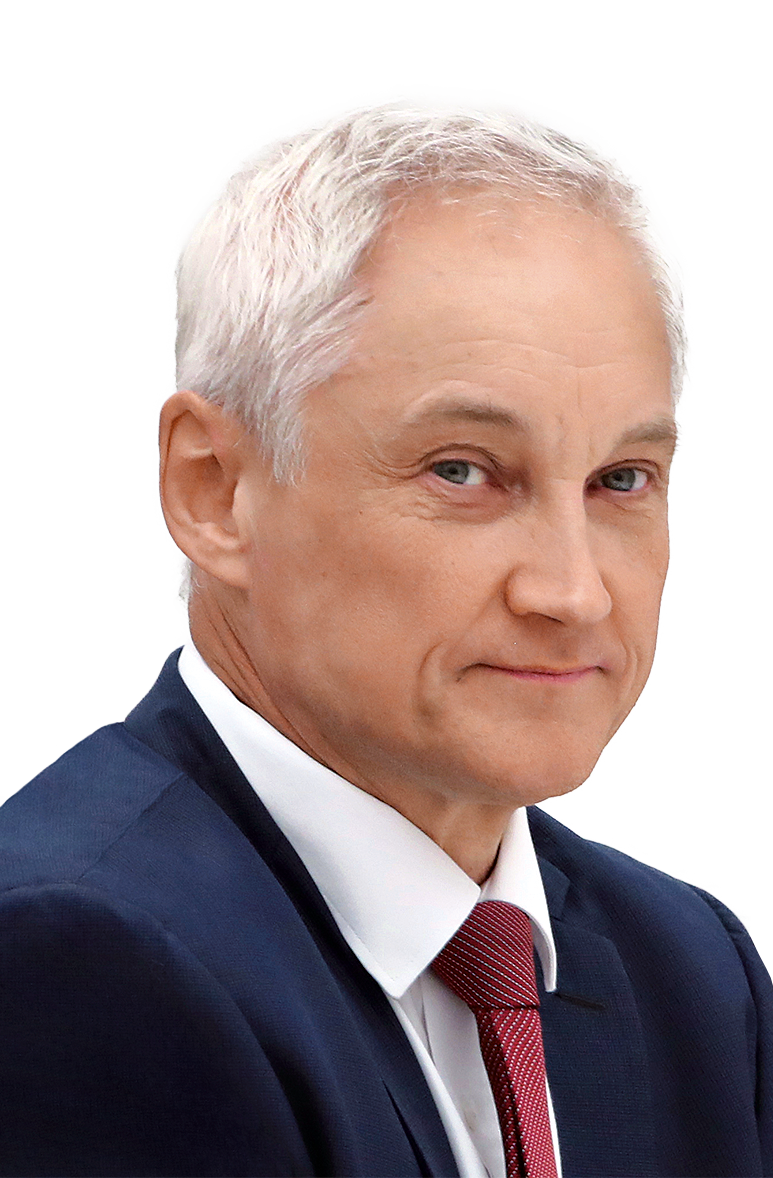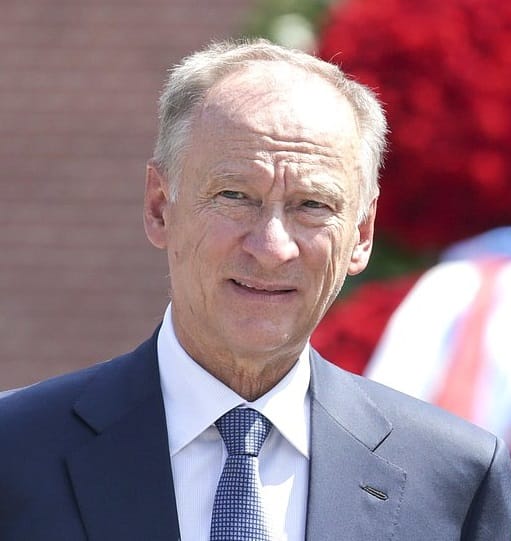More about regime security than preparing for a long war
Putin has appointed a new defense minister and made a reshuffle in the top of some of the most important agencies responsible for the war in Ukraine. Andrey Belousov has replaced longtime defense minister Sergey Shoigu, who in turn has replaced Nikolai Patrushev as secretary of the Security Council.
Most commentators have explained the reshuffle with a desire by Putin for preparing the Russian system for a long war in Ukraine. Belousov is an economist, and he has played an important role in shaping the wartime economy in Russia. But I have a different take on it. While the change of leadership clearly reflects a desire to improve the course of the war, it is first and foremost about politics and coup-proofing Putin’s regime.
Why did Shoigu have to go?
This is the easiest question to answer: Shoigu has been overpromising and underdelivering for more than two years in the war. It’s clear that Putin is not satisfied with the way the war is going, because otherwise he would not be changing his defense minister. The reason why Shoigu has not been sacked before is that he gave Putin a convenient cover against criticism about how the war was going. Putin could keep a distance from all the problems by pretending that he was not personally involved in the decisions of the military operation and the associated logistics. By replacing Shoigu, Putin is no longer shielded from criticism the same way. He has now made the decision to replace the person in charge, and he has appointed the successor. He therefore also owns the results.
Why Belousov as defense minister?
Many people have made a great deal out of Belousov’s background as an economist and interpreted that as a sign that Putin wishes to improve the war economy and streamline the military production for a protracted war. It has been pointed out that in times of war, the primary job of the defense minister is not necessarily to take charge of the military, but rather to make sure that the military has the necessary resources to win the war. The operational decisions will be made by the generals, and it does not matter much whether the minister of defense has insights into what the generals are doing.
I’m not convinced by this argument. Sure, it is important to have an economist in charge of the wartime economy, but it also makes sense that the defense minister understands the military side of things. But I think this can be interpreted in two ways. Either that Putin wants to leave it to the generals to fight the war, or that he wants to take personal control and run the war directly between himself and the generals. Either way, it does not seem like the optimal solution for a defense minister in a country at war.

Unless of course the lack of connection to the military is a feature and not a bug. The appointment of Belousov is an effective way for Putin to coup-proof the Ministry of Defense. One of the biggest dangers against Putin’s regime is if the military turns against the leadership. We have already seen several examples of dissatisfaction among military officers, and we have seen the system gradually tightening the control. This has been seen with crackdowns on military leaders and influencers who seemed to become uniting figures for those voices in the military that were critical about the conduct of the “special military operation”, for example Girkin and Surovikin.
With Belousov, Putin is sure to have a person in charge of the Defense Ministry who can never become a uniting figure for military critics, because the soldiers can find almost nothing in him that they identify with. He looks like a bureaucrat, he talks like a bureaucrat, he knows very little about military questions, and his loyalty is unequivocally with Putin and not with the soldiers.
What happened to Patrushev?
This one is interesting. Patrushev is one of Putin’s closest allies, but it looks like he is being sidelined with this move. It has been indicated that he is leaving the post as secretary of the Security Council to focus on other duties, but it has not been specified what his new job will be. Patrushev is a former director of the FSB, and since 2008 he has been the secretary of the Security Council. In this time, he has turned the Secretariat into a powerful structure with deep influence in the intelligence agencies, and he has created a role for himself as something that resembles a national security advisor.
But in addition to this, Patrushev is also one of Putin’s personal friends, and he is regularly described as the second most powerful man in Russia. He has, allegedly, significant influence in shaping Putin’s worldview. Unfortunately, Patrushev is also a person with a deeply problematic understanding of the world, and he is generally not the kind of person you would want to have in a position where he can put ideas into Putin’s mind. Many of his ideas resemble mysticism, he is a believer in conspiracy theories, and he is obsessed with ideas about Russia’s greatness and an eternal struggle with the West.

Removing Patrushev from the position as secretary of the Security Council is a clear demotion – and it might even be a retirement. It’s impossible to say why Putin made the decision to let Patrushev go. One possibility is that he got tired of listening to Patrushev’s advice, and that after two years of war it was necessary to get a fresh perspective on the international situation. But another possibility is that this was also about coup-proofing and bolstering the regime against potential turmoil in the Russian elite. Few people in the top of the Russian system have a position where they can realistically organize a coup or challenge Putin, but Nikolai Patrushev did. He has the personal connections, and until this week he had a formal role in the security system where he could potentially organize a conspiracy.
The reality can also be a bit of both. Maybe Putin didn’t feel that he needed Patrushev’s advice anymore, and then it was just good housekeeping to remove him from this position where he could potentially become a danger. I am of course not saying that Patrushev was involved in a conspiracy about regime change at this point, but if Putin felt that he didn’t need Patrushev anymore, it made sense to get rid of him to protect himself against future potentialities.
It is interesting to note that Nikolai Patrushev’s son, Dmitry Patrushev, was actually promoted in the government reshuffle, and that he is now serving as Deputy Prime Minister for Agriculture. It looks like a consolation prize for Nikolai Patrushev. He has to accept that his time is now over, but he has been treated well, and the best thing he can do for his son is to not make trouble. In any case, sidelining Patrushev also contributes to coup-proofing Putin’s regime because it removes one of the few realistic challengers.
What will Shoigu do in the Security Council?
Not much. Some people have been making the argument that theoretically speaking the transfer to the Security Council could be seen as a promotion for Shoigu, and that he will now take over control of the powerful structure and that Patrushev has built. I think this is a wrong way to look at it. Whatever influence Patrushev had, was based on his personal relationship with Putin, and it is not something that Shoigu can inherit.
The move from the Defense Ministry is a significant demotion for Shoigu. In the Defense Ministry he had the control over enormous resources, and he had an organization willing to take orders. This gave both formal and informal influence, and it gave infinite possibilities of corruption – which in Russia is a significant source of power. As secretary of the Security Council he will have nothing of that. He will have the resources to run a secretariat, and he will control some people who push papers around, but it is a much less influential position than what he had before.
It raised eyebrows last month when Shoigu’s crony and deputy defense minister Timur Ivanov was arrested for corruption, but the purpose now seems clear. They made an example of Ivanov to make sure that everyone knows that Shoigu is unable to protect his friends. This will make it very difficult for him to build a power base in the Security Council. Shoigu is an extremely skilled political operator, and he is a survivor. I would not rule out the possibility that Shoigu can somehow reemerge at some point. But for the time being he is in a weak position.
What’s the big picture?
While many people argue that the reshuffle in the Defense Ministry is about ensuring a more effective wartime economy, I think the more important outcome has been that Putin has strengthened his internal position and coup-proofed the system. The new constellation will make it more difficult for the critics in the military to find a uniting figure who can express their dissatisfaction with the way that Putin is running the “special military operation”. It has also effectively retired and paralyzed Nikolai Patrushev who was one of the few potential challengers of Putin in the Russian elite.
And with that, I’m also saying that I think we should be careful in interpreting decisions like these from Putin as expressions of some kind of grand strategy for how Russia is supposed to win the war. Rather, it is yet another example that questions of efficiency and strategy are subordinate to considerations about regime security.